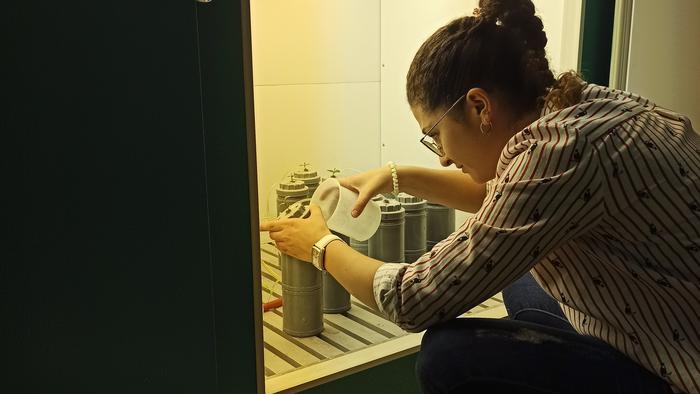Â
A DAUCO team finds that silicon is a potential means of promoting plant growth, probably by favoring the absorption of nutrients such as potassium
Restrictions on the use of certain agrochemicals, such as fertilizers or pesticides, in the field of agribusiness have boosted interest in looking for alternatives to protect and strengthen crops like olive groves. In this context, a team from the María de Maetzu Unit of Excellence in the Department of Agronomy at the University of Cordoba has verified how an element that is naturally present in the soil, silicon, can be used to bolster the growth of plants by favoring their absorption of potassium.
The study, the results of which have been published in the scientific journal Scientia Horticulturae, was based on an experiment with olive plants grown with and without silicon, with the aim of analyzing the effects of the presence or absence of this element on their development. The conclusion of the tests was that the absence of silicon did not limit plant growth, but its application did stimulate it. Plants that received silicon leaf applications grew longer stems and a greater number of branches. In this way, the team has proven that silicon is not an essential element for the growth of plants, since they can survive and develop without it, but it is a beneficial element for their growth by stimulating their absorption of nutrients, particularly potassium.
According to María Benlloch González, Inmaculada Martos García and Ricardo Fernández Escobar, researchers with the Arboriculture group in the Department of Agronomy, the results of the test represent a further step in research on the benefits of natural elements, such as silicon, and their potential agricultural use as biostimulants. Silicon has also been proven to activate mechanisms involved in plants' tolerance of certain stresses. According to the research team, "the results obtained take us closer to more sustainable management, with less use of agrochemicals, such as fertilizers and pesticides."
The trial
For this pioneering study in the field of olive groves, the DAUCO team carried out experiments with Arbequina plants from seeds, thus ensuring that they were free of silicon. The seedlings were grown using a hydroponic system for which materials like PVC containers and plastic tubes were used, thereby avoiding glass to ensure a silicon-free medium. The seedlings were then classified into homogeneous groups, which received different doses of silicon by foliar application weekly.
The results showed that a foliar application of silicon of between 10 and 20 milligrams per liter favored growth, as the plants increased in size and grew more shoots, as well as exhibiting leaf stomata of greater density. As indicated by the research team, these beneficial effects may be associated with an increase in the absorption of nutrients, such as potassium, an element that the plant needs to grow.



